Bangkok Girl is a film of genre Drama
Bangkok Girl (2005)

If you like this film, let us know!
- Infos
- Casting
- Technical infos
- Photos
- Videos
- Film quotes
- Characters
- Music
- Awards
Length 43minutes
Themes Films about children, Films about sexuality, Erotic films, Films about prostitution, Documentary films about law, Documentaire sur une personnalité, Documentary films about prostitution, Documentary films about child abuse, Films about child abuse
Rating64%










Bangkok Girl is a documentary film that was both produced and directed by Jordan Clark. It is a low-budget film, having cost $10,000 to produce, and takes sex tourism in Bangkok as its subject. Bangkok Girl is 43 minutes long and focuses on Pla, a bargirl who is 19 years old and who guides Clark through the city. The film explores Pla's background and how she came to be where she is. Pla began working as a bargirl at the age of 13, and, while she had managed to avoid being prostituted up until the point that the documentary was filmed, the film suggests that she will eventually be forcibly prostituted. In November 2005, the film aired on "The Lens", a program on Canada's CBC Television. Sweden's Sveriges Television also aired the film. In 2011, Tara Teng, a Canadian contemporary abolitionist who was Miss Canada at the time, said that her first impetus to combat human trafficking came from watching Bangkok Girl. In one scene of the film, Pla looks into the lens of the camera and says "No one cares about me." Teng said that this line changed her life. She further said that, at the time, she could not understand how a person could believe their personal worth was determined by the amount of money a person would pay for them.
Comments
Leave comment :
Suggestions of similar film to Bangkok Girl
There are 69850 with the same cinematographic genres (including 102 with exactly the same 3 genres than Bangkok Girl), 11686 films with the same themes (including 5 films with the same 9 themes than Bangkok Girl), to have finally 70 suggestions of similar films.If you liked Bangkok Girl, you will probably like those similar films :
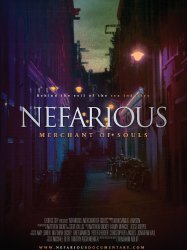
Nefarious: Merchant of Souls (2011)
, 1h36Directed by Benjamin Nolot
Origin USA
Genres Documentary, Crime
Themes Films about children, Films about slavery, Films about sexuality, Erotic films, Films about pedophilia, Films about prostitution, Documentary films about law, Documentaire sur une personnalité, Documentary films about prostitution, Documentary films about child abuse, Films about child abuse
Actors Bill Oberst Jr.
Rating73%





The first scene of the film is a reenactment of a kidnapping. A girl is kidnapped and brought to the apartment of a criminal organization, where she is confined with other girls in a room with a creaky ceiling lit by a flickering lightbulb. The girls are naked and cry from fear as men examine them and shout commands and threats at them. One girl is dragged away into another room. The girls are then brutally abused until they become sexually submissive. These events take place in a small European town, possibly in Moldova. The film asserts that 10% of the population of Moldova has been sexually trafficked. From there, the film tracks the girls through Serbia and Croatia to Amsterdam's red-light district and markets in Berlin and Las Vegas. Among legal prostitution in cities, the slavery goes undetected. Slaves are depicted in confinement, at their places of work, and as they are sold. Many of the girls are orphans and all are either initially kidnapped or tricked into forced prostitution. The methods that the traffickers use to keep the girls include hard drugs, mind control, and both sexual and physical abuse.

Redlight (2009)
Directed by Adi Ezroni
Origin USA
Genres Documentary, Crime
Themes Films about children, Films about slavery, Films about sexuality, Erotic films, Films about pedophilia, Films about prostitution, Documentary films about law, Documentaire sur une personnalité, Documentary films about prostitution, Documentary films about child abuse, Films about child abuse
Actors Lucy Liu, Reena
Rating73%






Prisoners of a White God (2007)
, 51minutesGenres Documentary
Themes Films about education, Films about children, Films about slavery, Films about religion, Films about sexuality, Erotic films, Films about prostitution, Documentary films about law, Documentaire sur une personnalité, Documentary films about politics, Documentary films about prostitution, Documentary films about religion, Documentary films about child abuse, Political films, Films about child abuse
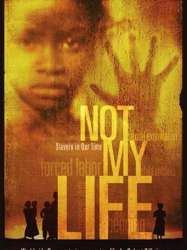
Not My Life (2011)
, 1h23Directed by Richard Young
Origin USA
Genres Documentary, Crime
Themes Films about children, Films about slavery, Medical-themed films, Films about sexuality, Erotic films, Films about pedophilia, Films about prostitution, Documentary films about law, Documentaire sur une personnalité, Documentary films about prostitution, Documentary films about health care, Documentary films about child abuse, Films about psychiatry, Films about disabilities, Films about child abuse
Actors Glenn Close
Rating77%





Ce film dépeint les pratiques cruelles et déshumanisantes de la traite des êtres humains et de l'esclavage moderne à l'échelle mondiale. Filmé sur cinq continents, dans une douzaine de pays, "Not My Life" emmène le spectateur dans un monde où des millions d'enfants sont exploités via un panel stupéfiant de pratiques, incluant le travail forcé, le tourisme sexuel, l'exploitation sexuelle, et les enfants soldats.
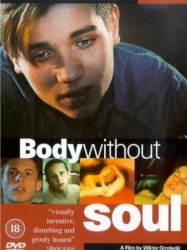
Body Without Soul (1996)
Genres Documentary
Themes Films about children, Films about sexuality, Erotic films, LGBT-related films, Films about prostitution, Documentary films about law, Documentaire sur l'homosexualité, Documentaire sur une personnalité, Documentary films about prostitution, Documentary films about child abuse, Films about child abuse, LGBT-related films, LGBT-related film
Rating66%





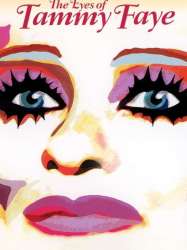
The Eyes of Tammy Faye (2000)
, 1h18Origin USA
Genres Drama, Biography, Documentary
Themes Films about religion, Films about sexuality, Films about television, LGBT-related films, Documentaire sur une personnalité, Documentary films about religion, LGBT-related films, LGBT-related film
Actors Tammy Faye Messner, RuPaul
Rating71%






Eros + Massacre (1969)
, 3h22Directed by Yoshishige Yoshida
Origin Japon
Genres Drama, Biography, Documentary
Themes Films about anarchism, Seafaring films, Politique, Films about sexuality, Transport films, Erotic films, Political films
Actors Mariko Okada, Toshiyuki Hosokawa, Yūko Kusunoki, Yoshisada Sakaguchi
Rating73%





The film is a biography of anarchist Sakae Ōsugi, who was assassinated by the Japanese military in 1923. The story tells of his relationship with three women: Hori Yasuko, his wife; Noe Itō, his third lover, who was to die with him; and his jealous, second lover, Masaoka Itsuko, a militant feminist who attempts to kill him in a tea house in 1916. Parallel to the telling of Ōsugi’s life, two students (Eiko and Wada) do research on the political theories and ideas of free love that he upheld. Some of the characters from the past and from the present meet and engage the themes of the movie.
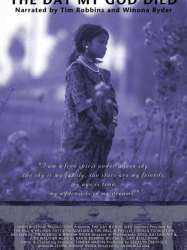
The Day My God Died (2003)
Origin USA
Genres Documentary
Themes Films about children, Films about slavery, Films about sexuality, Erotic films, Films about pedophilia, Films about prostitution, Documentary films about law, Documentary films about prostitution, Documentary films about child abuse, Erotic thriller films, Films about child abuse
Actors Tim Robbins, Winona Ryder
Rating80%





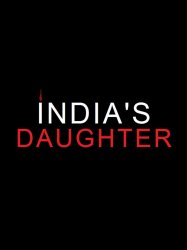
India's Daughter (2015)
, 1h3Directed by Leslee Udwin
Origin United-kingdom
Genres Drama, Biography, Documentary, Historical, Crime
Themes Films about sexuality, Rape in fiction, Documentary films about law
Rating81%





Le film documentaire retrace l'affaire du viol collectif ainsi que sur les témoignages des proches de la victime et de ses parents y sont présentés, ainsi que ceux des agresseurs qui ont été interviewés sur leur lieu d'incarcération.

The Dark Side of Chocolate (2010)
Origin Danemark
Genres Drama, Documentary
Themes Films about children, Environmental films, Films about slavery, Documentary films about business, Documentary films about law, Documentary films about environmental issues, Documentaire sur une personnalité, Documentary films about child abuse, Films about child abuse
Rating74%





In 2001, the Chocolate Manufacturers Association formed an action plan entitled the Harkin-Engel Protocol aimed at ending child trafficking and slave labor in the cocoa industry.
 Connection
Connection